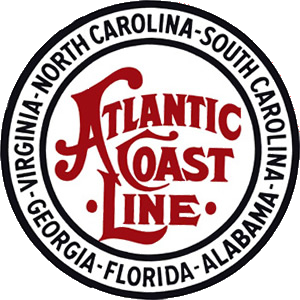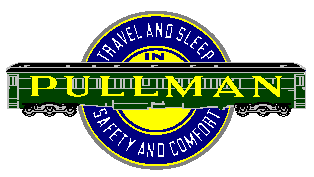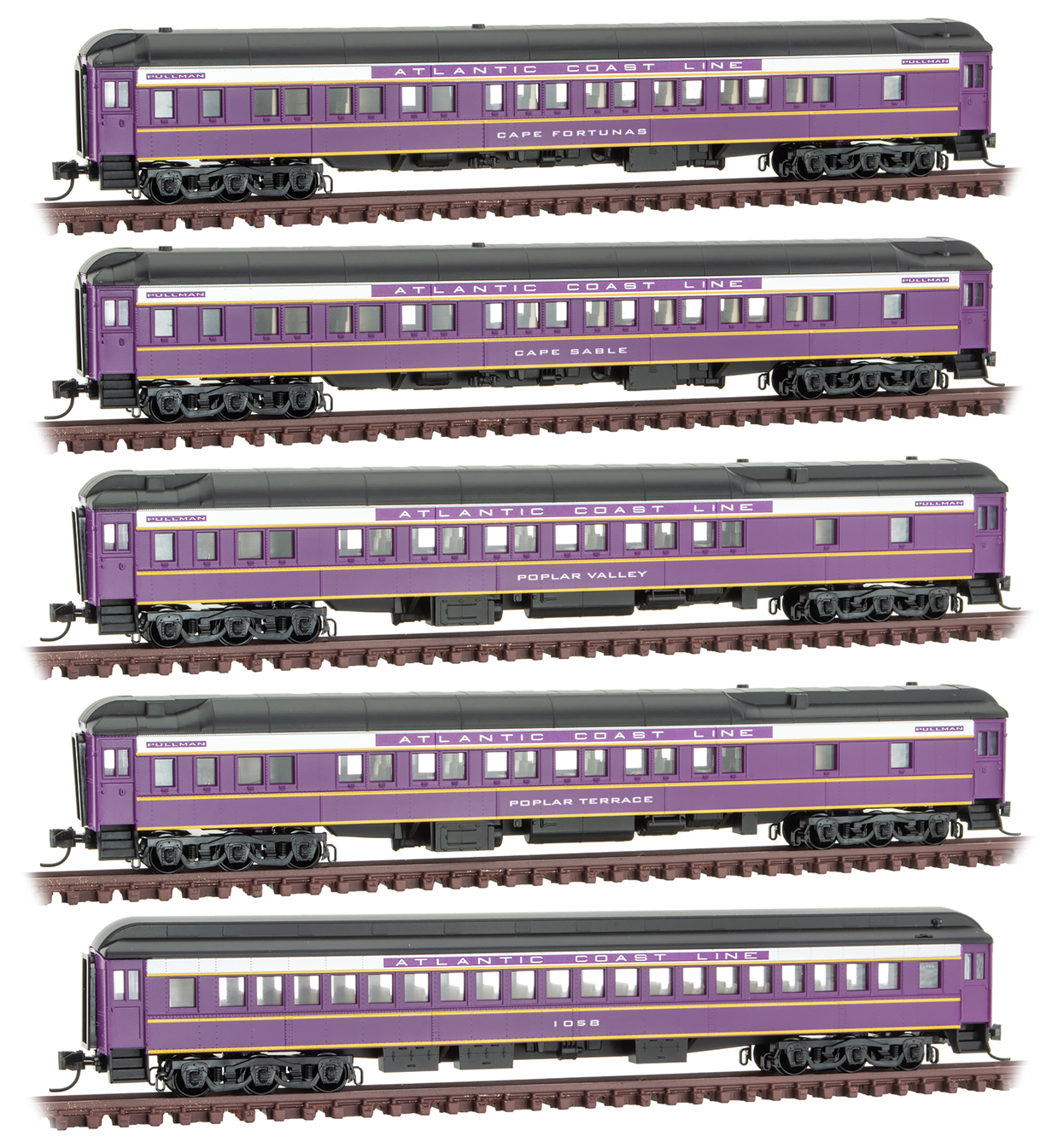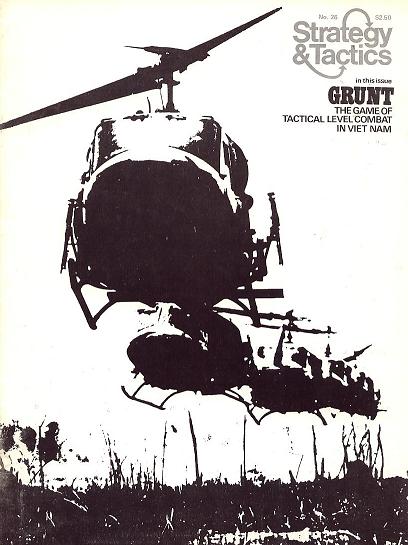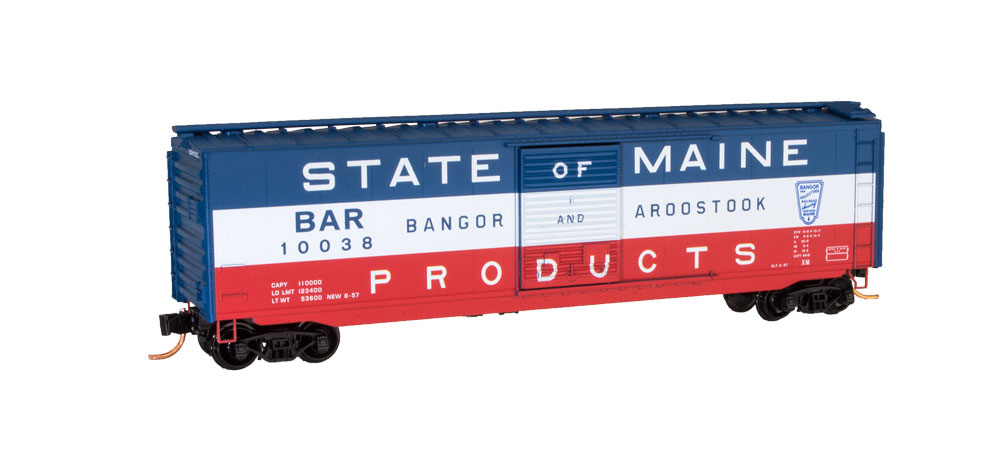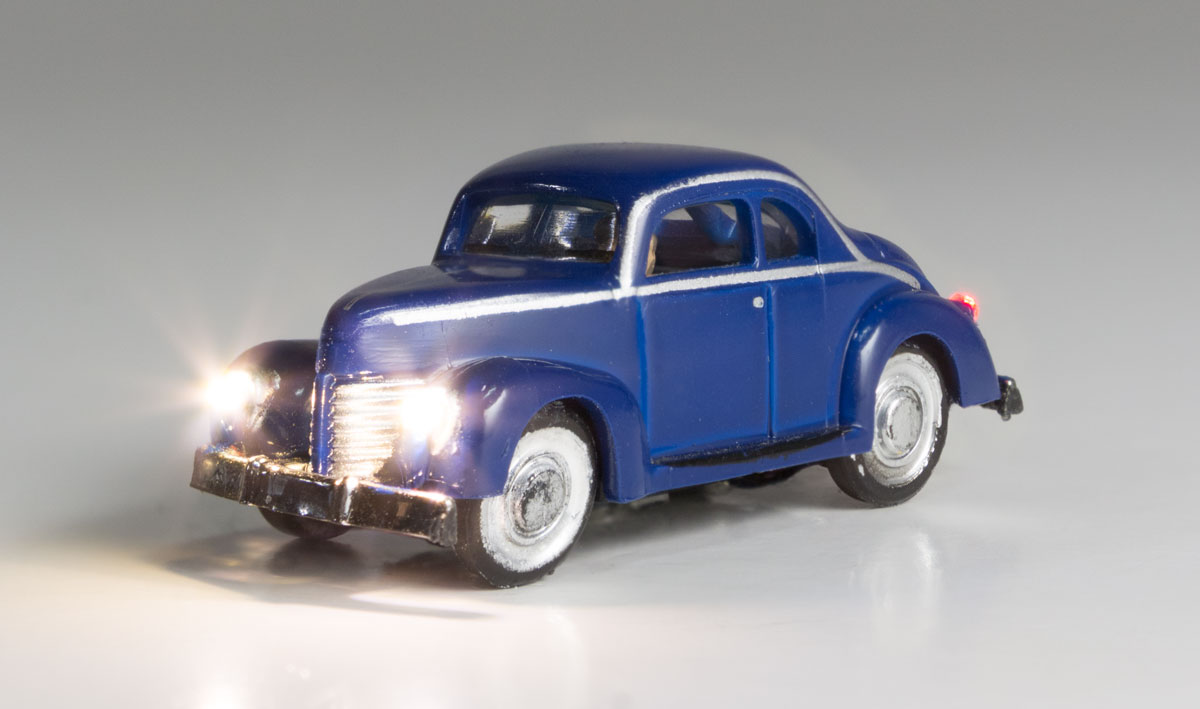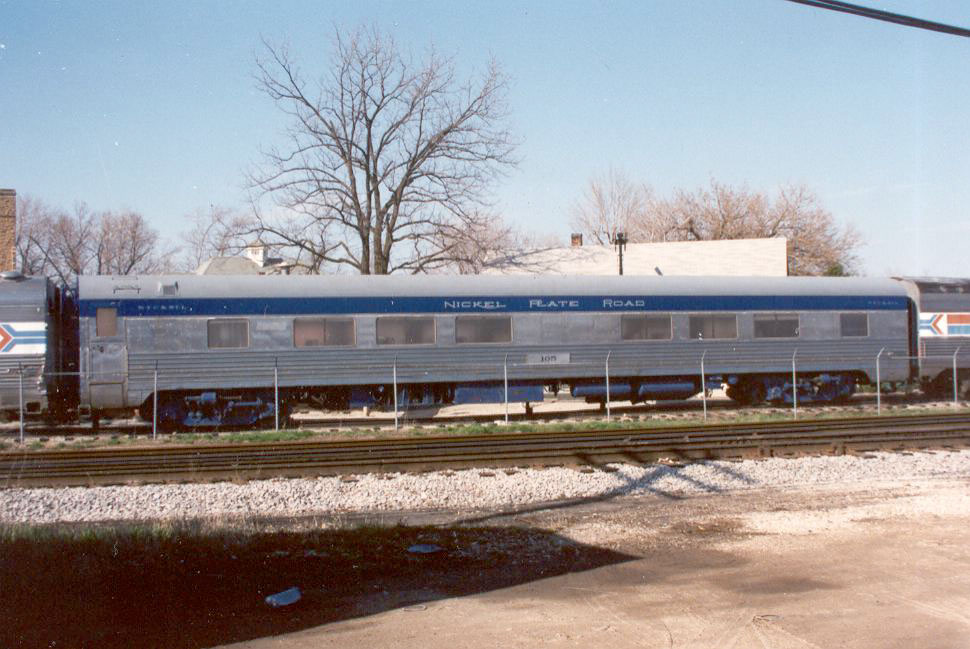Centralia Car Shops - CCS6905-07 - Passenger Car, Lightweight, Pullman, Coach, 52-Seat - Atlantic Coast Line - 262
| Stock Number | CCS6905-07 |
| Original Retail Price | $44.95 |
| Brand | Centralia Car Shops |
| Manufacturer | InterMountain Railway |
| Body Style | Centralia Car Shops Passenger Coach 52 Seat |
| Image Provider's Website | Link |
| Prototype Vehicle | Passenger Car, Lightweight, Pullman, Coach, 52-Seat (Details) |
| Road or Company Name | Atlantic Coast Line (Details) |
| Road or Reporting Number | 262 |
| Paint Color(s) | Aluminum with Black Roof |
| Print Color(s) | Black |
| Coupler Type | Generic Magnetic Knuckle |
| Wheel Type | Injection Molded Plastic |
| Wheel Profile | Small Flange (Low Profile) |
| Item Category | Passenger Cars |
| Model Type | Lightweight/Streamlined |
| Model Subtype | Corrugated |
| Model Variety | Pullman 52-Seat Coach |
| Prototype Region | North America |
| Prototype Era | NA Era III: Transition (1939 - 1957) |
| Scale | 1/160 |
Prototype History:
With their large windows and comfortable reclining seats, these coaches allowed passengers on shorter distance trips to recline and watch the countryside roll past. The 52 seat car was used for the commuter and shorter distance intercity travelers, say for instance from Reno to Sacramento. The P-S 52 seat car is a Plan 7600 car built for Lot 6856 for the C&O. Some were sold to SAL & C&NW (then to SP & CB&Q). The NKP coaches, also designed by the AMC were Plan 7600-A - they, like the 10-6s that were built at the same time, had an extra row of corrugations and their electrical systems were different (as were the lighting systems).
Road Name History:
ACL’s roots go back to the Petersburg Railroad in 1830. By the 1870s, their successors and some affiliated lines began using Atlantic Coast Line as a nickname and through a number of consolidations Atlantic Coast Line became the official name by 1900.
Atlantic Coast Line funneled traffic from northern Virginia (and its connections to the northeastern trunk lines via the RF&P) down through the Carolinas, Georgia and into Florida as far as Naples on the Gulf Coast. Acquisitions after the war added routes from Columbia and Spartanburg, South Carolina to the coast and lines linking Atlanta, Birmingham and Montgomery to southern Georgia and Florida.
At that point, the Atlantic Coast Line boasted 5,743 miles of railroad, 629 locomotives, 361 passenger cars, and 31,284 freight cars. To put that into perspective for you western guys, that's four times the size of Western Pacific.
ACL was the premier route for New York to Florida passenger traffic. The ACL's "Champion" left New York on the Pennsy, was handed off to the RF&P from Washington to Richmond, ran on the ACL to Jacksonville, FL and was then handed off to Florida East Coast for the ride to Miami. The "West Coast Champion" skipped the FEC as ACL went all the way to Tampa on Florida's Gulf Coast on its own rails. ACL also forwarded some Chicago to Florida trains via connections. Much of the system was relatively flat, allowing ACL to use 4-6-2’s in fast freight service (one of the few railroads to do this.)
ACL is best known for its purple and silver diesels. This scheme was used on freight, passenger, and switcher power until 1957. By that time, it became clear that these colors were difficult to maintain, so the ACL switched to racing stallion black with yellow “tack.” The Atlantic Coast Line merged with the Seaboard Air Line Railroad in 1967 to form the Seaboard Coast Line.
At that point, the Atlantic Coast Line boasted 5,743 miles of railroad, 629 locomotives, 361 passenger cars, and 31,284 freight cars. To put that into perspective for you western guys, that's four times the size of Western Pacific.
ACL was the premier route for New York to Florida passenger traffic. The ACL's "Champion" left New York on the Pennsy, was handed off to the RF&P from Washington to Richmond, ran on the ACL to Jacksonville, FL and was then handed off to Florida East Coast for the ride to Miami. The "West Coast Champion" skipped the FEC as ACL went all the way to Tampa on Florida's Gulf Coast on its own rails. ACL also forwarded some Chicago to Florida trains via connections. Much of the system was relatively flat, allowing ACL to use 4-6-2’s in fast freight service (one of the few railroads to do this.)
ACL is best known for its purple and silver diesels. This scheme was used on freight, passenger, and switcher power until 1957. By that time, it became clear that these colors were difficult to maintain, so the ACL switched to racing stallion black with yellow “tack.” The Atlantic Coast Line merged with the Seaboard Air Line Railroad in 1967 to form the Seaboard Coast Line.
Brand/Importer Information:
Centralia Car Shops is an N-Scale manufacturer based in Des Plaines Illinois. It is a wholly owned subsidiary of Des Plaines hobbies. Des Plaines Hobbies was founded by Ron Sebastian in 1984. Centralia subcontracts its manufacturing to InterMountain and 'piggy-backs' the production runs onto the InterMountain runs using the same factories in China as InterMountain. Shipping from factories in China is also coordinated with InterMountain as is distribution to retailers.
Des Plaines Hobbies is a old fashioned hobbyshop with an emphasis on Model Railroading. It was started 33 years ago when you could purchase a tube of glue and sticks of balsa wood. That is still true today, although we have added a few items. About 20 years ago we ventured into some light manufacturing and are also home to Centralia Car Shops, S Scale America, and O Scale America lines of kits, decals and parts. Also along the way we have purchased a few small lines that we still offer such as Microscale's S Scale decal line and Mullet River Model Works HO and S lines.
Des Plaines Hobbies is located 3 1/2 miles north of O Hare International Airport at 1524 Lee/Mannheim (US 12-45). Pace buses conveniently run north and south on Lee/Mannheim from O Hare and the Des Plaines Metra station (1 mile north). For drivers, there is parking for a couple hundred cars out front and on the right side of the store. We are located on the south side of the Jewel food store under the red awning. Come for a visit. ADA restroom available. Coffee is usually hot, if not, ask and we will put a pot on.
Des Plaines Hobbies is a old fashioned hobbyshop with an emphasis on Model Railroading. It was started 33 years ago when you could purchase a tube of glue and sticks of balsa wood. That is still true today, although we have added a few items. About 20 years ago we ventured into some light manufacturing and are also home to Centralia Car Shops, S Scale America, and O Scale America lines of kits, decals and parts. Also along the way we have purchased a few small lines that we still offer such as Microscale's S Scale decal line and Mullet River Model Works HO and S lines.
Des Plaines Hobbies is located 3 1/2 miles north of O Hare International Airport at 1524 Lee/Mannheim (US 12-45). Pace buses conveniently run north and south on Lee/Mannheim from O Hare and the Des Plaines Metra station (1 mile north). For drivers, there is parking for a couple hundred cars out front and on the right side of the store. We are located on the south side of the Jewel food store under the red awning. Come for a visit. ADA restroom available. Coffee is usually hot, if not, ask and we will put a pot on.
Item created by: gdm
on 2018-01-30 13:16:01
Last edited by: gdm on 2020-05-14 19:42:19
If you see errors or missing data in this entry, please feel free to log in and edit it. Anyone with a Gmail account can log in instantly.
Last edited by: gdm on 2020-05-14 19:42:19
If you see errors or missing data in this entry, please feel free to log in and edit it. Anyone with a Gmail account can log in instantly.




